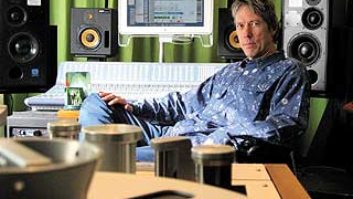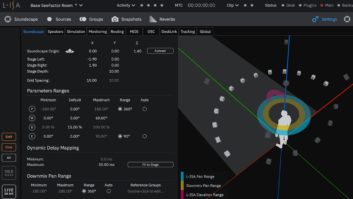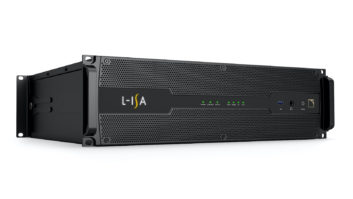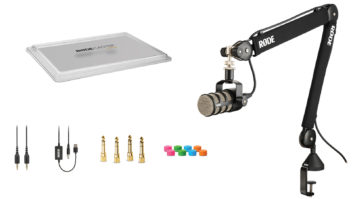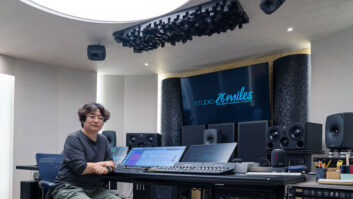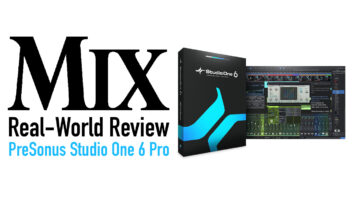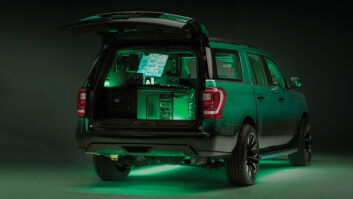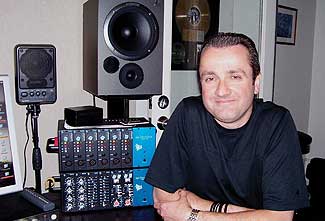
Robert L. Smith
Engineer/producer Robert L. Smith’s career arc is emblematic of the shifting fortunes of New York City’s studio scene over the past 20 years. Beginning in 1987, Smith worked for hit-making facilities before going freelance in ’97, as commercial rooms declined. In ’07, he launched Defy Recordings (www.defyrecordings.com) to provide recording, editing, overdubbing, mixing and mastering services to a clientele that includes independent, budget-conscious DIY musicians, composers and singer/songwriters. “It seems like if you don’t have your own setup, you’re not working,” Smith says.
Smith’s home studio is in Manhattan’s Hell’s Kitchen. “I can record vocals and guitars here easily, and when I require a facility, I’ll go to Avatar, SevenSeas or Pyramid,” he says. He estimates that his room is “about 12×15 feet. I put some [acoustic] panels up and I use the couch as a bass trap. I’ve lucked into the quietest building I’ve ever heard in Manhattan — with windows closed. I face a courtyard, look out at a tree, and I don’t hear anything.”
Defy Recordings is outfitted with a dual-processor Mac G5 and Pro Tools HD system with a Digidesign 192 I/O audio interface. Smith relies on premium outboard hardware from API, Focusrite, Manley Labs, Avalon, Chandler, SPL, Empirical Labs, TC Electronic and more. For plug-ins, Smith turns to the Waves Platinum bundle, McDSP and Sound Toys. “I’ll do all my real EQ and compression with the analog stuff and then just add the plug-ins as icing,” he notes.
The studio’s mic cabinet comprises models by AKG, beyerdynamic, Coles, Groove Tubes, Neumann, Oktava and Shure, as well as a Yamaha Subkick and a Placid Audio Copperphone mic. For monitoring, Smith employs Event Electronics 20/20bas monitors and a Yamaha MS101 II mono speaker: “Get it right in mono and it will translate to everything else,” Smith says. He keeps a variety of guitars, pedals and amps on-hand for clients: “It’s always helpful to have different flavors around, [rather than] carve up each sound with an EQ.”
Smith says he often draws upon the technical expertise and professionalism he learned from producers and engineers such as Phil Ramone, Tom Lord-Alge and Neil Dorfsman: “What I miss about the ‘old days’ are track sheets that everyone knew how to fill out. It’s like the Wild West out there with everyone working on their own systems. Engineers forget that this is a service industry and their work must be decipherable by others.”
